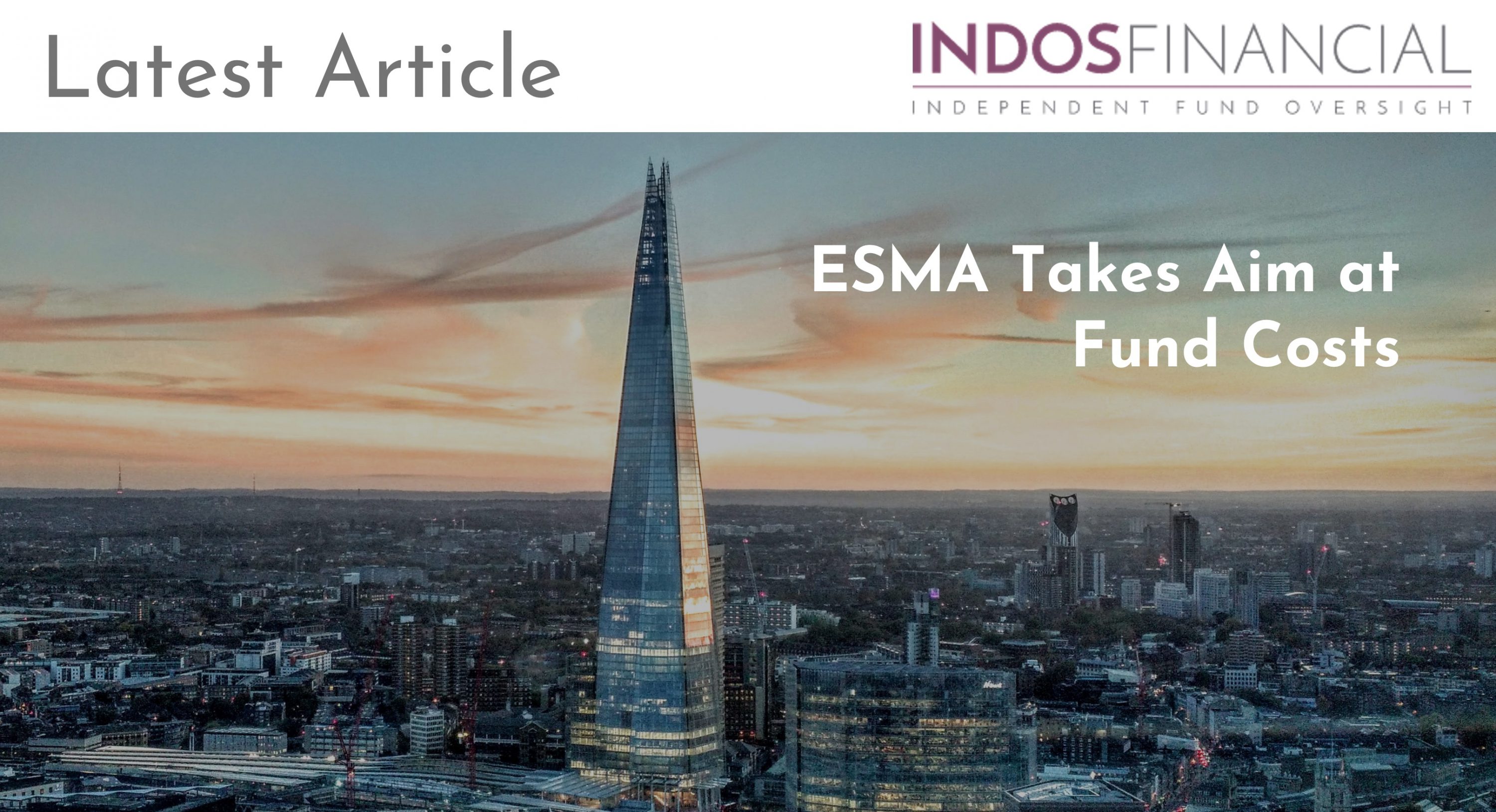The thorny issue of fund costs and charges has been hotly contested by EU regulators for a number of years now amid concerns that investors were being disadvantaged. This focus continues and in June 2020 the European Securities and Markets Authority (ESMA) published a supervisory briefing for European national competent authorities looking into the charging structures at UCITS and alternative investment funds (AIFs) regulated under the Alternative Investment Fund Managers Directive (AIFMD).
In essence, its proposals seek to ensure that EU regulators consistently supervise the cost-related provisions in the UCITS and AIFMD legislation in order to prevent undue charges being borne by investors. The proposals could also present an opportunity for independent depositaries acting in the best interests of investors to broaden the scope of their oversight over the operations of funds.
The briefing states that managers of UCITS and AIFs should produce comprehensive “pricing process” reports, outlining and reviewing their individual fund costs. In order to prevent any unfair investor charges, ESMA is recommending that fund managers consider an extensive range of data points in their reports, adding that costs should be clearly disclosed to investors in a comprehensive and transparent manner. As part of this exercise, managers must clearly articulate the following:
- An assessment on whether their costs are necessary for the fund to operate in line with its investment objective
- Evaluate whether their costs are proportionate compared to market standards and the type of service provided, with a particular emphasis on potential conflicts of interest
- Determine if the fee structure is consistent with the characteristics of the fund
- Assess whether the costs borne by the fund are aligned with the net returns
- Ensure that all charges are fair and that investors are treated equally
- Validate that there are no duplicative costs for services
- Verify that any fee caps are applied and clearly disclosed to investors
- Corroboration that UCITS/AIF performance fees comply with ESMA’s guidelines
- Confirmation that all costs are disclosed in line with the applicable EU rules (i.e. UCITS, AIFMD, Packaged Retail Investment and Insurance Linked Products [PRIIPS])
- Ensure that the process and all fees are based on reliable and documented data
ESMA’s consultation broadly mirrors some of the rules which have already been rolled out to authorised retail funds in the UK. In September 2019, the Financial Conduct Authority (FCA) pushed through with its new Value for Money provisions, a set of rules which require UK managers to produce reports for investors periodically demonstrating how they are delivering value, including an assessment of the costs and charges applied to the fund.
The longer-term question of whether these rules will be imposed on the UK funds industry post-Brexit is open to debate. However, UK regulators are widely accepted as being very forthright on the issue of costs and charges. The UK’s Retail Distribution Review clamped down on commissions well ahead of MiFID II (Markets in Financial Instruments Directive II) while the EU authorities are currently playing catch-up on the Value for Money requirements and the Senior Managers & Certification Regime’s (SMCR) accountability provisions. With the UK looking to retain its EU fund distribution footprint after Brexit, it is unlikely that the FCA will want to deviate or diverge from ESMA’s proposals.
As regulators continue to pivot their attention towards fund charges, it is likely that service provider relationships could come under further scrutiny. For instance, the ESMA consultation explicitly references third party costs and conflicts of interest, which will prompt asset managers to analyse whether they are receiving genuine value from their vendors.
In common with incoming changes to the UCITS and AIFMD liquidity risk management rules, which will require depositaries to ensure that managers have adequate liquidity risk management policies and procedures in place, regulators could look to the depositary to perform similar oversight of the pricing report process. Independent depositaries which are not tied to other service providers of the fund, such as the fund administrator, and therefore less conflicted will be in a strong position to monitor the conduct of these cost assessments and enhance investor protection.
Although some asset managers will almost certainly lament the additional workload, the shift towards improved transparency around charges is a positive development and will address one of the frustrations often expressed by investors about cost transparency. Enhanced disclosure around charges will enable operational due diligence teams at investors to better benchmark their fund manager costs. The firms which embrace openness and adopt equitable charging structures may well benefit as a result.
The ESMA Supervisory Briefing: https://www.esma.europa.eu/press-news/esma-news/esma-promotes-convergence-in-supervision-costs-in-ucits-and-aifs




